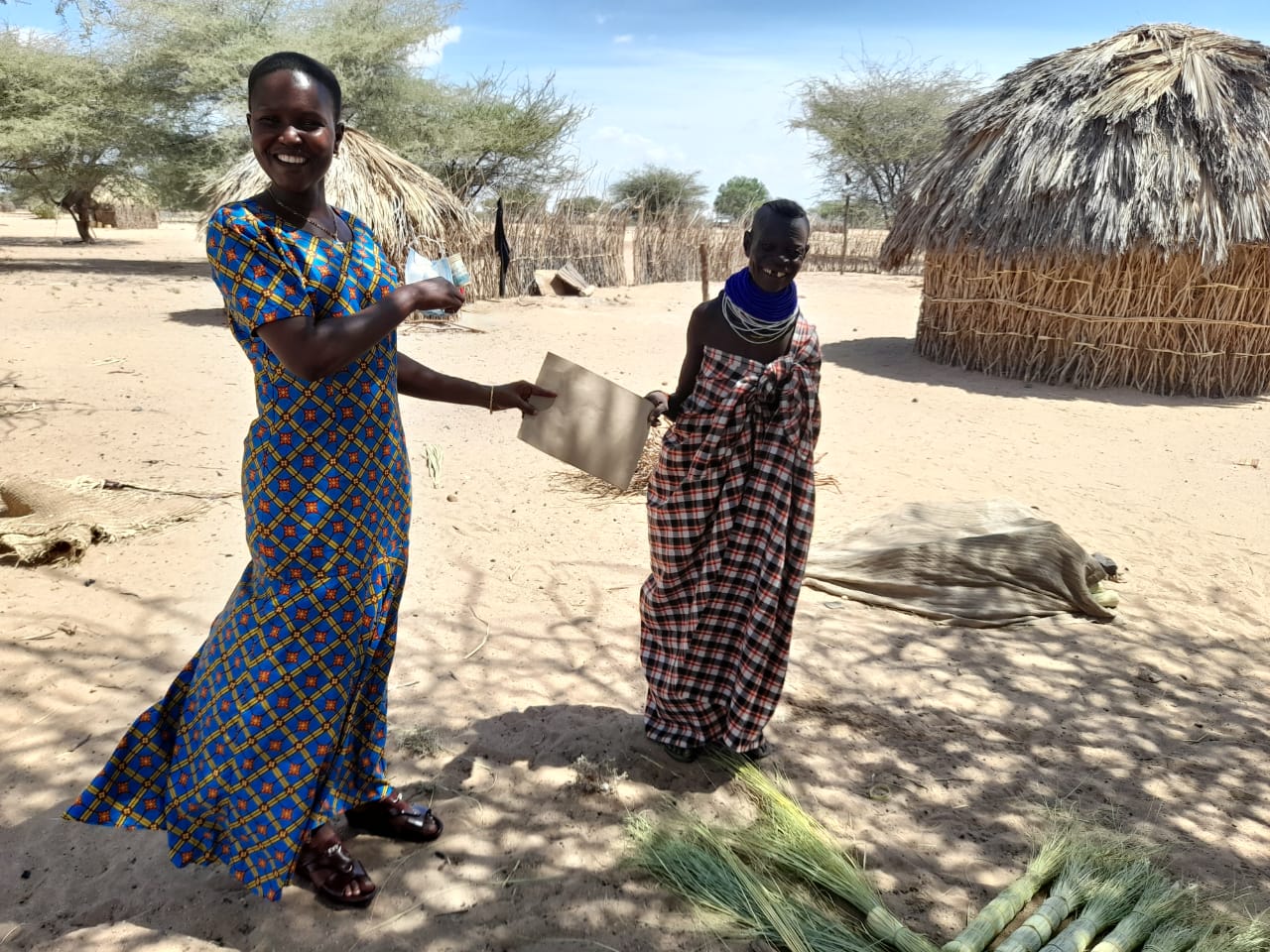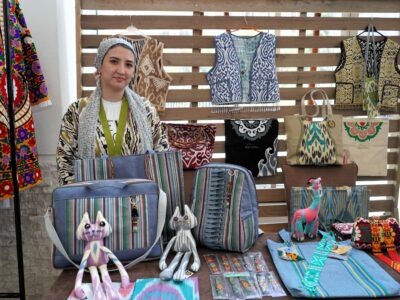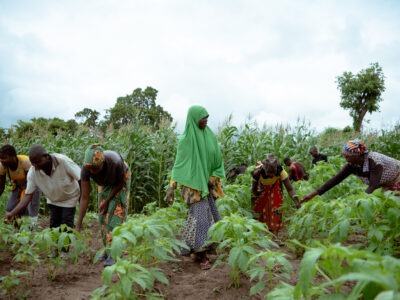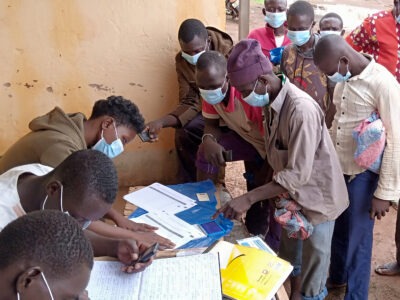
When the COVID-19 pandemic hit Kenya in March 2020, many sectors experienced disruptions, and among them was education. To slow the spread of the virus, the government instituted several measures, including a directive to close all learning institutions.
COVID-19 has interrupted the learning of millions of young people around the world, which is why this year’s International Day of Education is themed “Recover and Revitalize Education for the COVID-19 Generation.” In Kenya, the Feed the Future-funded Livestock Market Systems (LMS) Activity is working toward this goal by supporting girls’ education in Turkana County amid the pandemic through the Mercy Corps-implemented and ACDI/VOCA-led Strengthening Community Capacities for Growth and Resilience (SCCGR) Award.
Pandemic Leads to Loss of Income for Single Mother
Akai Ekal, a single parent living in Turkana County’s Kakwanyang village, was severely affected by the pandemic. Part of the pandemic’s economic impact has been a loss of livelihoods and incomes. Akai, whose livelihood depends on selling items such as brooms, charcoal, and firewood, experienced a drastic drop in customers. With little to no income, she could no longer sufficiently support her family, and her children were forced to scale down to one meal a day or, at times, no meal at all.
Toward the end of 2020, the Kenyan government announced that schools would resume in January 2021. However, Akai worried that her daughter would not resume school if she could not afford to pay the school fees. To help parents like Akai send their children back to school, LMS partnered with the Turkana County government to lead a back-to-school campaign, in line with government directives.
Back-to-School Campaign Supports 18 Girls
As part of its advocacy efforts, Mercy Corps team engaged the office of the County Women Representative, the Honorable Joyce Akai Emanikor, for support. Hon. Joyce provided bursary checks worth USD 2,000 (KES 200,000) to support 18 girls in five villages in Turkana Central subcounty, including Akai’s village of Kakwanyang. Akai first heard the term “bursary” when the team visited her home to collect details about her daughter. Soon after, the team visited her again to provide her with a check.
“For me, it really means a lot, and I am very happy because my daughter can now go to school. I am very grateful,” Akai said. Having received the check, Akai’s daughter, Mary, was able to resume her education. “I am super excited to have received this bursary, since I can now confidently go to school,” Mary said.
“I hail from a poor background, and last year when I joined form one in January, I was sent home [often] due to lack of school fees. Since my mother is a single parent, she could not afford even a quarter of my fees, and I had to remain at home up until this year on 13th January, when the check was presented to my mother by the LMS team. It came as a Godly sent gift to me to pursue my education.”
mary apua, a high school student in turkana county
Advocacy Efforts Boost Communities’ Self-Reliance
In addition to the bursaries, the LMS’s advocacy efforts influenced the Ministry of Education in Turkana to commit resources and staff worth USD 6,250 (KES 625,000) toward joint initiatives to mobilize communities. This includes mobilizing global development organizations and community leaders to support the back-to-school campaign in Turkana Central, Turkana North, and Turkana West subcounties.
“We are proud of the team’s efforts in ensuring that adolescent girls are assured of education especially in these uncertain times,” said Hussein Noor Abdille, Chief of Party of the SCCRG Award, which committed USD 5,360 (KES 536,000) toward the efforts. “This campaign supports our objective to improve human capital, especially for adolescent girls, including supporting them to transition to pathways for their self-reliance. We are grateful for the commitment and support we have always received from the county government of Turkana and the Women Representative,” Abdille said.
The back to school campaign will include a series of meetings with stakeholders in each subcounty not exceeding the maximum 30 people allowed per COVID-19 regulations. Radio talks on local FM radio stations will air for three nights, and Technical and Vocational Education and Training (TVET) students and their instructors will lead road shows through the communities. These efforts aim to boost awareness of the importance of education for adolescent girls and boys, while also encouraging other stakeholders to support the campaign.
Learn more about the Feed the Future Kenya Livestock Market Systems Activity.
Learn more about our work in Kenya.








